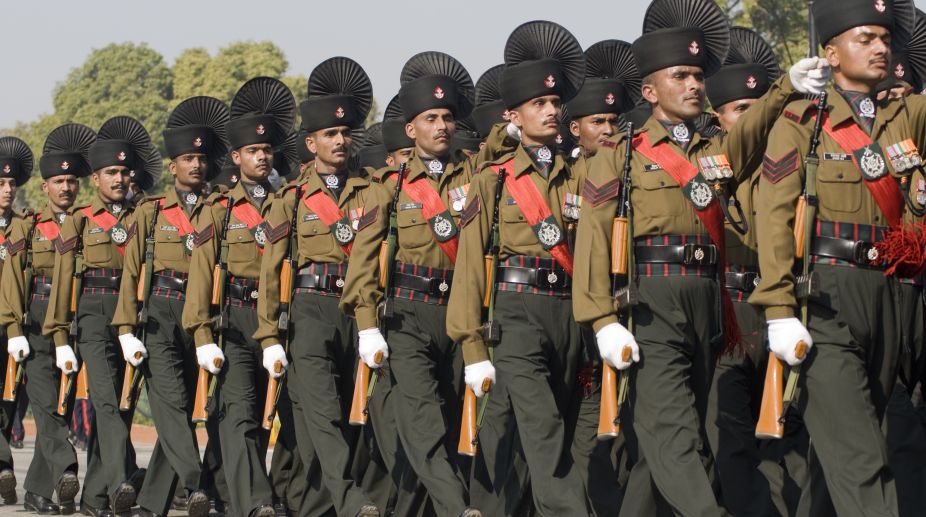Manipur looted weapons issue: Army, security forces recover INSAS rifles, guns, pistols, mortars, IEDs
Defence spokesman Lt. Col Amit Shukla said security forces also destroyed several illegal bunkers in the Kangpokpi district.

PHOTO: Getty Images
Universally are they hailed as soldiers par excellence, having proved their worth on battlefields in several theatres. Yet for all their gallantry they are unable to cut through the red-tape to which the Indian Army remains tethered.
It is of little consequence if the personnel creating complications for veterans of the 1962 war in receiving their pensions wear a uniform or “civvies”; it amounts to a national disgrace and adds to a long list of pensioners’ plagues that have not been sorted out by a government ready to condemn as anti-national anyone who does not deem military heroes just a step short of the saints eulogised in the scriptures.
Advertisement
In specific focus is the plight of elderly veterans who settled down in Lohitpur and other towns of Arunachal Pradesh — age has taken its toll, they find it difficult to return to their native places in Nepal, but since “rules mean rules” they cannot be paid their pensions anywhere else.
Advertisement
That makes a mockery of the mantra of digitisation revolutionising the manner in which sarkari business is conducted. It is not just a question of pensions, even health-care facilities are denied to them even though many risked life and limb defending Indian soil against aggression.
The problem is not new. When the attention of Pranab Mukherjee was drawn to the tangle during a visit to Pokhara last November, the Supreme Commander of the Indian Armed Services had waxed eloquent: “The ex-servicemen are the foundation pillars of the friendship between Nepal and India.
The Indian government and Indian Army are proud of the Gorkha soldiers and ex-servicemen. I, on behalf of the Government of India assure you that the government will never step back in its efforts for the welfare of its ex-servicemen.
Today 32,000 Gorkha soldiers are serving in the Indian Army”. Those words were reassuring for the 126,000 Gorkha pensioners living in India, particularly those too old to keep travelling to Nepal to complete formalities.
The issue now is whether Manohar Parrikar will initiate remedial action — or will he join some of his ministerial mates who accord little importance to the words of the President.
Advertisement